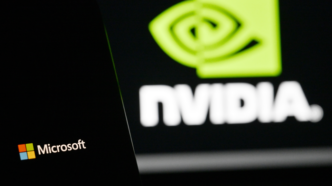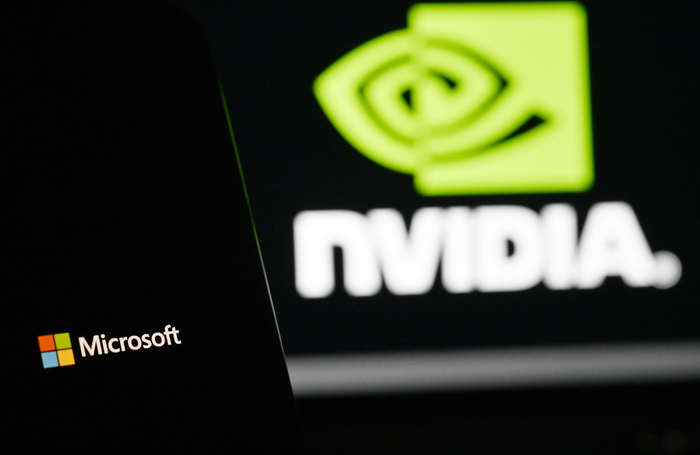The race to dominate artificial intelligence continues to reshape venture funding, and Nvidia is emerging as the most aggressive investor driving AI’s next wave.
Just last month, Nvidia backed two blockbuster AI deals: Lambda, which raised $480 million in a Series D round at a $2.5 billion valuation, and Together AI, securing $305 million at a $3.3 billion valuation. Both companies develop infrastructure critical to AI development and both share one major backer: Nvidia.
For those tracking AI investment trends, Nvidia’s presence is no surprise. Ever since Microsoft’s multibillion-dollar investment in OpenAI ignited the AI arms race, the landscape has shifted. Big Tech players — particularly Nvidia, Microsoft, and Google — have poured staggering amounts into AI startups. But no one is moving faster than Nvidia.
Nvidia Leads AI Investment Surge
According to Crunchbase data, Nvidia participated in 26 deals totaling $18.8 billion last year a massive leap from $4.5 billion across 24 deals in 2023. Much of that surge comes from mega-rounds like xAI’s $6 billion raise and OpenAI’s $6.6 billion round.
But even without those outliers, Nvidia has been writing large checks. The chip giant backed self-driving startup Wayve’s $1.1 billion raise and Scale AI’s $1 billion round, which pegged the data labeling company’s valuation at a stunning $13.8 billion.
What’s striking is how Nvidia’s AI investments now define its broader corporate strategy. Back in 2022, Nvidia made just nine startup bets. In each of the past two years, that number shot up to 36 investments annually showing clear focus on dominating AI’s infrastructure layer.
Even Nvidia’s venture arm, NVentures, has stayed active, though on a smaller scale. It participated in 14 investments totaling $89 million last year, up from 11 deals worth $824 million in 2023.
Microsoft Slows Down After OpenAI Bet
In contrast, Microsoft’s AI investing pace is slowing. Last year, the Redmond tech giant participated in nine funding rounds worth nearly $10 billion, slightly down from 12 deals totaling $12.2 billion in 2023.
Microsoft’s biggest moves overlapped with Nvidia, including stakes in OpenAI and Wayve, plus large investments in Figure and Bright Machines. However, Microsoft also made headlines with a $1.5 billion strategic investment into UAE-based G42, reflecting its global ambitions.
Interestingly, Microsoft’s venture arm, M12, stayed consistent closing 10 rounds totaling $268 million last year. But so far in 2024, Microsoft has barely made a splash, with only a small pre-seed investment in GuidenAI.
This slowdown hints at a strategic pivot. With its deep integration with OpenAI both as investor and competitor Microsoft may now be doubling down on internal AI development while balancing complex alliances.
Google’s Mixed Approach: Corporate Pullback, GV Steps Up
While Microsoft’s slight retreat raises eyebrows, Google’s drop-off is even more dramatic. Last year, the search giant’s corporate AI investments plunged by two-thirds, participating in just four deals totaling $3.2 million. That’s a steep fall from 12 deals worth $3.6 billion in 2023.
Google’s largest 2023 deal involved co-leading CharacterX’s $2.8 million seed round, a stark contrast to its earlier big-ticket investments.
Yet, Google’s venture arm, GV, remains active — taking part in 22 deals totaling $1.5 billion last year. Highlights include a $250 million Series E for Vercel and $400 million for Lightmatter, a startup revolutionizing chip connections using light.
GV’s strategy appears calculated, targeting deep tech and AI infrastructure plays, even as Google’s direct investments slowed.
The start of 2024 signaled possible shifts in strategy. Google, after pulling back, jumped back in with a fresh $1 billion investment into Anthropic, its high-profile OpenAI rival. It also joined Apptronik’s $350 million Series A — backing AI-powered humanoid robotics.
Meanwhile, Microsoft’s relative quiet suggests it’s prioritizing proprietary development — especially as OpenAI builds relationships with other heavyweights like SoftBank and Oracle.
Nvidia, on the other hand, shows no signs of slowing. With demand for its high-performance AI chips surging, Nvidia is uniquely positioned to fuel — and profit from — the entire AI startup ecosystem. Its investments not only generate returns but expand Nvidia’s dominance in AI infrastructure.
Despite their shifting strategies, Nvidia, Microsoft, and Google remain powerful forces pumping capital into AI’s most promising startups. Whether backing cloud platforms, robotics, or next-gen chip technologies, these tech giants continue shaping the future of artificial intelligence — and deciding who gets to build it.













